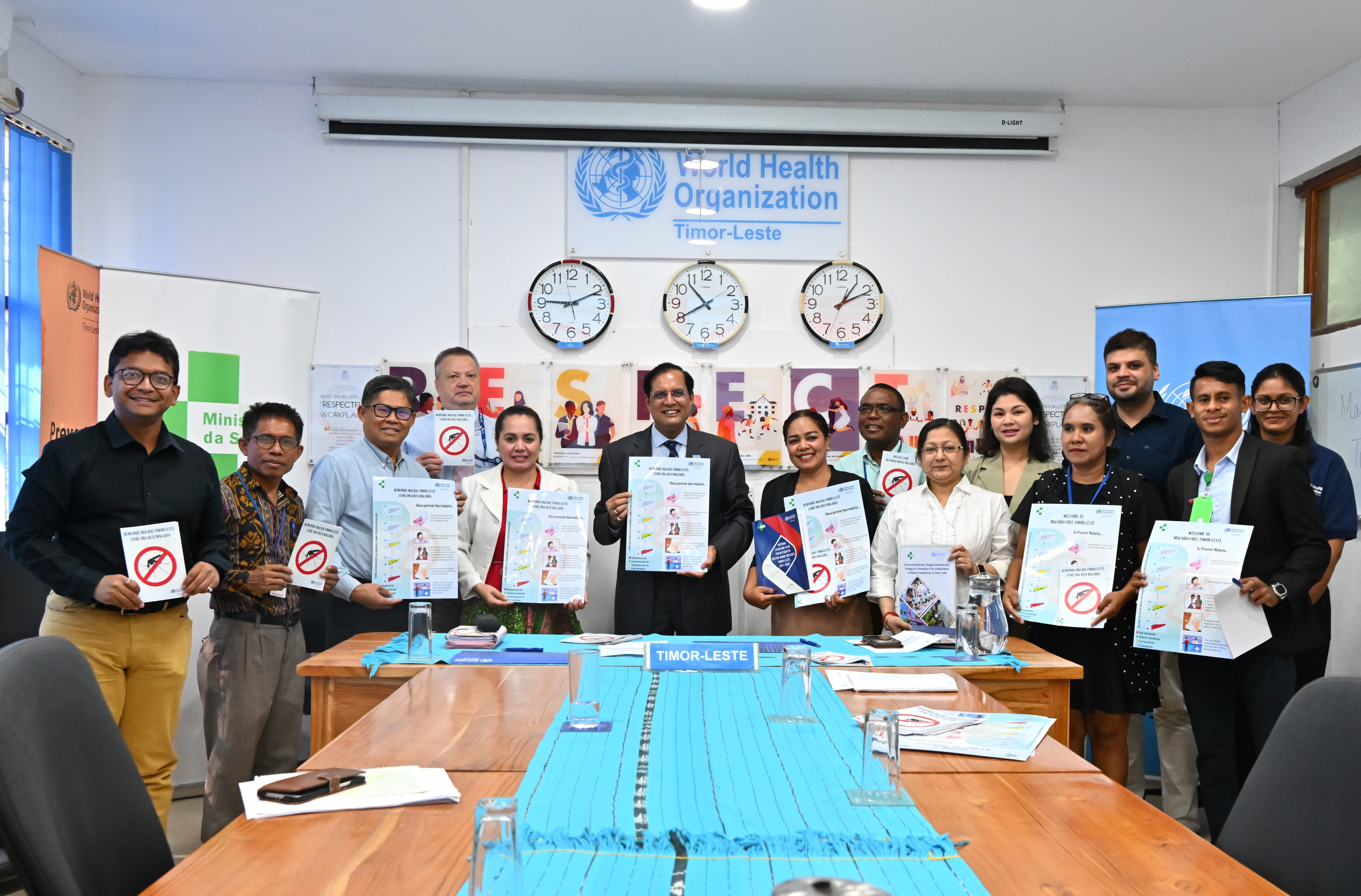24 July 2025 | Dili, Timor-Leste – The World Health Organization (WHO) has certified Timor-Leste as malaria-free, a landmark public health achievement for the young tropical nation, which launched a concerted fight against the disease soon after gaining independence in 2002.
With today’s announcement, a total of 47 countries and one territory have been certified as malaria-free by WHO. Timor-Leste is the third country in the WHO South-East Asia region to be certified, joining the Maldives (2015) and Sri Lanka (2016). Remarkably, this also marks Timor-Leste's second disease elimination in under two years, following its lymphatic filariasis-free certification in 2024.
“WHO congratulates the people and government of Timor-Leste on this significant milestone,” said Dr Tedros Adhanom Ghebreyesus, WHO Director-General. “Timor-Leste’s success proves that malaria can be stopped in its tracks when strong political will, smart interventions, sustained domestic and external investment and dedicated health workers unite.”
WHO grants malaria elimination certification when a country proves, beyond reasonable doubt, that indigenous transmission has been interrupted nationwide for at least three consecutive years. Timor-Leste reduced malaria cases from a peak of over 223,000 in 2006 to zero indigenous cases from 2021 onwards, a remarkable feat in a tropical, mountainous country where climate conditions favour year-round mosquito breeding and transmission.

Minister of Health Dr Élia dos Reis Amaral, SH, and WHO representative after submitting application for Malaria Free certification 2023
Mr Kay Rala Xanana Gusmão, Prime Minister of Timor-Leste, called the elimination a moment of immense national pride. “For over 20 years, we fought village by village, family by family. This victory belongs to our fearless health workers and every household that chose prevention. It proves that even the deadliest diseases cannot withstand the resolve of the Timorese people,” he said.
Dr Élia dos Reis Amaral, SH, Minister of Health, said malaria has been one of the country’s most relentless enemies. “We lost too many lives to a disease that should be preventable. But our health workers never gave up, our communities held strong, and our partners, like WHO, walked beside us,” she said, while calling on her healthcare force to prevent malaria's re-entry with continued vigilance and community action.
Dr Arvind Mathur, WHO Representative to Timor-Leste, called the malaria-free certification a defining national triumph, driven by bold leadership, efforts of health workers, and the resolve of its people. “Timor-Leste stayed focused— testing, treating, and investigating swiftly. Ending transmission and maintaining zero deaths takes more than science; it takes grit,” said Dr Mathur.
A rapid shift from high burden country to malaria-free
Timor-Leste’s success in eliminating malaria began with the Ministry of Health’s swift establishment of the National Malaria Programme in 2003. Within years, the country rolled out rapid diagnostic tests, introduced artemisinin-based combination therapy, and began distributing free insecticide-treated nets to high-risk communities.
Despite shortages of health workers and doctors, the Government of Timor-Leste steadily invested in a three-tier health system—national hospitals, referral hospitals, CHCs, and health posts—complementing its broader malaria control efforts.
In 2009, with support from the Global Fund, Timor-Leste scaled up nationwide vector control through widespread distribution of long-lasting insecticide-treated nets and indoor residual spraying. Malaria diagnosis was also expanded, with microscopy and rapid diagnostic tests made available at all local health posts.
WHO Timor-Leste has played a critical role in supporting the country’s path to elimination by facilitating in-country assessments after 36 months of zero indigenous cases as well as the first and second WHO Pre-Certification Missions in 2023 and 2024. WHO also coordinated the Final Certification Mission in 2025, which confirmed sustained interruption of indigenous transmission. Over the years, the country office also assisted the Ministry of Health in securing grants to sustain malaria-control efforts.
With real-time surveillance through an integrated case-based surveillance system (ICBS-TL) and trained health workers ensuring rapid and early detection, including at borders — Timor-Leste has built a strong defence against malaria’s return. These integrated efforts not only led to its certification but will also be key to sustaining vigilance in the years ahead.
